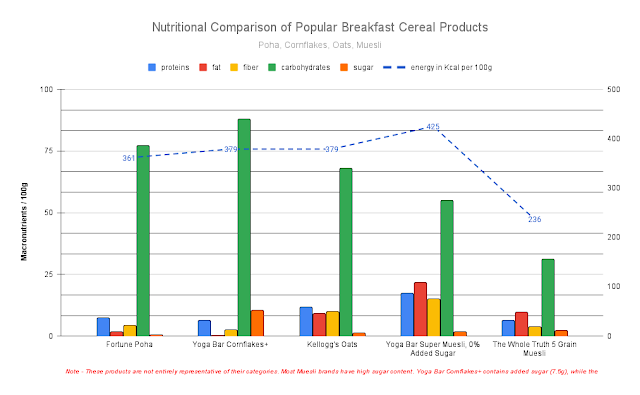Open Food Facts' India Database Reaches 10K Product Milestone!📈🎉
I've been actively contributing to Open Food Facts (OFF) - the Wikipedia of Food & an open-data project focused on food transparency and nutrition since January 2023, participating in both data collection and review. Recently, we've hit a significant milestone: 10,000 Indian products have been added to the global food information database by dedicated volunteers!
While it took several years to reach this number, the last 4,000 products were added just during this year. It's been exciting to see crowdsourcing efforts in India gain real momentum.
Here are a few insights I've gathered during the process of adding and editing data:
* Many packaged food producers in India don’t clearly disclose what’s in their products. Important information like the manufacturing and expiry dates, ingredient lists, and nutritional details are often in tiny print, overshadowed by flashy marketing aimed at attracting consumers—especially kids and busy individuals. As a result, consumers either have to do extra research or risk compromising their health over time. This is where Open Food Facts makes a difference. Through the app and website, it digitally displays ingredients and nutrition facts, empowering people to make informed food choices. I've been learning a lot about nutrition through this work, and it’s helped me make healthier eating decisions too.
* OFF's platform allows users to explore food data in powerful ways. By clicking on keywords like "Green Dot India," for example, you can view all vegetarian products. This ability to slice and dice data is particularly helpful for making healthy food choices.
* One surprising thing I’ve noticed while reviewing data is how multinational food companies vary their product formulations across different countries. For instance, drinks like Fanta and even baby food sold in India have significantly higher sugar content than the same products in countries with stricter regulations.
* With greater public awareness about food, consumers have the power to drive change, pushing manufacturers and regulatory authorities to address unhealthy formulations and modify ingredient compositions. Bournvita, a beverage mix from Cadbury India, which marketed itself as a health drink despite being high in sugar, was forced to reduce its sugar content after a social media backlash. The Food Safety and Standards Authority of India (FSSAI) instructed e-commerce platforms to stop labeling dairy- or malt-based beverages as "health drinks." Additionally, FSSAI issued a directive requiring food businesses to stop using the claim "100% fruit juice" on labels and ads for reconstituted fruit juices.
* Over 73% of the US food supply is ultra-processed, which correlates with increased incidence of disorders like angina & diabetes. The exact percentage for India is unknown. With citizen science projects like OFF, we can be better informed.
* I’ve gained a deeper understanding of Ultra-Processed Foods (UPFs), thanks to OFF’s Nova ratings and Nutri-Score system. I now have a clearer picture of which foods are raw, minimally processed, or ultra-processed. This has changed how I look at everyday food choices.
* Finally, being part of OFF’s global community has been intellectually stimulating. Through the OFF Slack channel, I’ve connected with like-minded people from all over the world, and the discussions around food and nutrition have been incredibly enriching.
Want to join the action at Open Food Facts?
Check out the Open Food Facts app (available on Android and iOS) or visit their website. As you scan or search for nutrition information on food products using OFF, you can contribute by adding missing details such as photographs and label information. Whether you're a passionate foodie, a health-conscious consumer, or a researcher, your contributions can make a real difference in creating a healthier, more sustainable future for everyone.
Also see -




Comments
Post a Comment